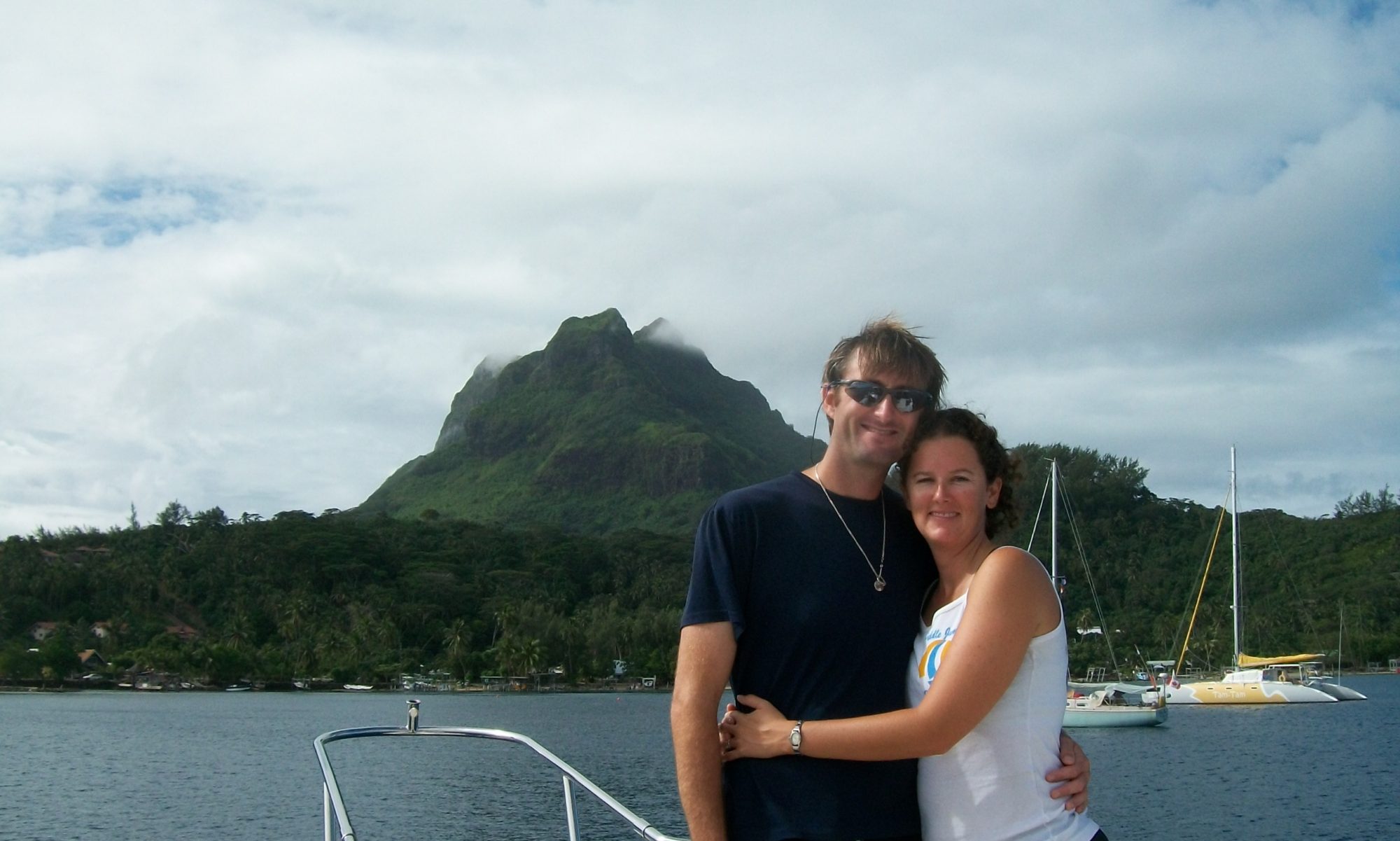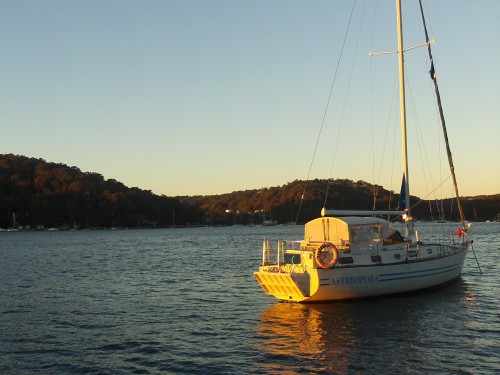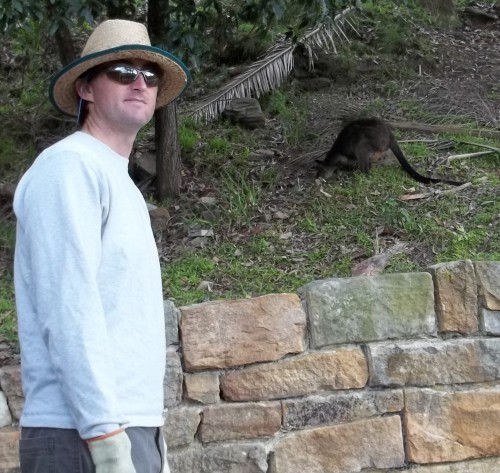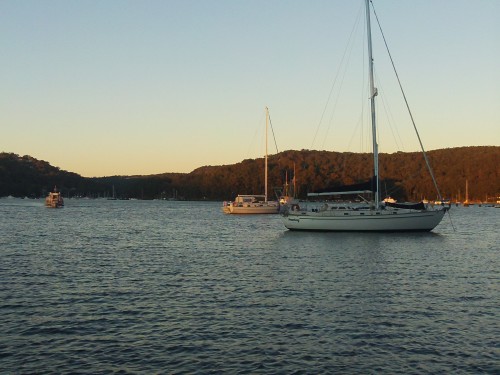Pittwater, NSW, AU
Living for free as volunteer crew on someone else’s yacht sounds all well and good while you’ve got a boat to live on but we are often asked what we do when we’re between yachts.
Our first few months in Australia are a good example. After we left our work with the racing stable there was about a month before we found a job “sailing” in New Zealand and after that about another month before we decided the best way to celebrate the 4th of July was to get trapped in a genuine Australian blizzard. Both of these situations were the same: too short a time to find a temporary position but too long to want to pay for a hotel in a country with a high cost of living. So we had to answer the question –
What does a sailor do for a cheap night’s rest down under?
One option is to hole up somewhere cheap and just rent a place. This had worked very well for us in Mexico; so well if fact that we spent quite some time gorging ourselves on tacos and taking a few road trips. As we’ve come to discover though, Australia ain’t cheap.
We could have gone back to the fruit picking trail but as we found out there and as our friends over here would say, “yeah no.”
Instead we decided to get involved in another genuine Australian backpacker experience:
Working for accommodation.
The premise here is that one of the ways hostels in Australia keep their prices lower than hotels is by employing travelers to do the grunt work of the hostel for free in exchange for a bed for the night.
When we weren’t learning to surf in Coff’s harbor we drove the guest pick up van and swept up the common spaces. Our time in Pittwater usually involved yardwork with wallabies.
While wallabies are cute, they aren’t very helpful with gardening.
So for about 2 hours light work a day, we skipped out of paying about $60 a night for a place to sleep (yeah, like we said, Australia is expensive). Over 2 months, you can see how saving $840/week would pretty rapidly add up to thousands of dollars and we got to live in a place for a few weeks while getting to know both the people who lived there (since we worked with them) and a lot of the other backpackers (since we spent time with them).
Getting the positions was foolishly easy. We just got a book of hostels, picked the area we wanted to go to and started calling and asking if they had work in exchange for accommodation. It’s a very normal thing here and while most positions were already filled by backpackers, usually with enough phone calls we’d find a place that was losing its workers in a few days. Also, we had our own transportation so we were able to get out to the more remote hostels, which were often the best opportunities.
This was all done on a handshake and the agreement was typically you could stay as long as the hostel manager was happy with you and needed the help. Some places had work some days and not others – it just varied. As we understand it most people stay from a few days to a few weeks. It was actually pretty much the same deal that we had on ships, just shorter term and on land.
We still think boats are better though
This would not have worked for us as a long term solution because we were in a dorm and even though we often had the room to ourselves because it was the off season, it was still a dorm room. That being said, we did stay in our converted camper at one place and just used the facilities in exchange for work. This gave us more privacy and was even cheaper for the hostel since they didn’t lose beds.
Also, the 2 hours of work were often placed in the middle of the day (after checkouts) which makes it difficult to go do anything. This would have also interfered had we been looking for actual work.
But if you find yourself down under with a few days to a few weeks between adventures and are looking for an inexpensive place to live that won’t take up too much of your day while giving you some interesting experiences (hey, we had never surfed or hung out with wallabies before) then working for accommodation can fill the gap nicely.
Now, of course, if you ask us the best free bed you can find remains the one on a sailing yacht.
Greg and Tiffany are traveling around the world on sailing yachts and keep a video blog of their (mis)adventures. If sailing to Tahiti on a 44 ft sailboat, 3-day delays for wine tastings, getting pooped on by seagulls, opening coconuts with dull machetes, sailing past tornadoes and ukulele Christmas carols are for you, then check them out at www.CoastGuardCouple.com!





Nonetheless, about once every few days we take a short sail, usually between two nearby islands or to another anchorage on a different part of our current island. These trips often start in the morning so that we arrive around noon, when the light is good for seeing into the water. Since Ocelot does not move very fast by land standards (10 mph/16 kmph is very good speed) even a short sail can take several hours, and we usually only make one in a day.
Sounds like you’re making a great trip!